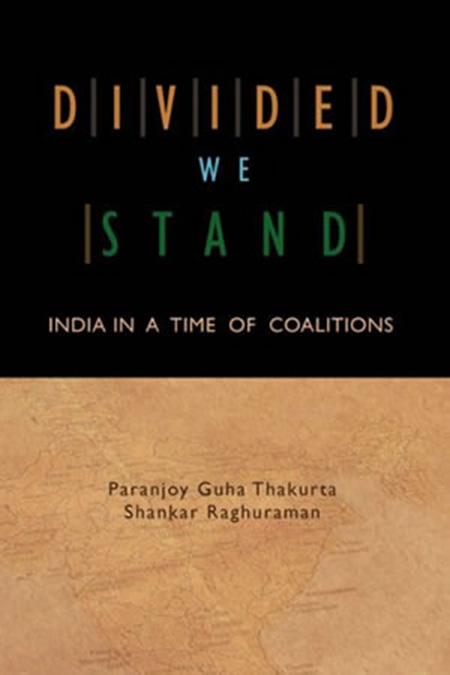He has been lauded as India's most dynamic scientist. The list of prestigious awards and citations he has received runs into many pages. He took science out of the lab and brought it to factory floors. He has done more than most others to protect India's traditional knowledge that the MNCs eye avariciously. As the longest-serving (13 years) director-general of the Council of Scientific & Industrial Research (CSIR), which controls 40-odd research outfits with roughly 18,000 employees and an annual budget of around Rs 1,500 crore, he influenced India's crucial policies relating to scientific research, patents and IPRS. And continues to do so even a month after he resigned.
But his critics, including the Left parties and a few NGOs, allege that as the top science administrator, he nudged India's policies to suit the demands of developed nations.
And there was a conflict of interest between his dual role as an administrator and member of global committees. At least once, India had to retract views stated by Mashelkar at the World Intellectual Property Organisation (WIPO) panel. There are also charges of financial impropriety against him, and the Supreme Court has admitted a PIL filed by J. Sundaresan Pillai, secretary, CSIR Scientific Workers' Association, at the National Institute of Science Communication & Information Resources (NISCAIR), a CSIR constituent.
So, who's the real Raghunath Anant Mashelkar? Outlook spoke to Mashelkar and his critics, pored through hundreds of pages of court papers and other documents, and pieced together a fascinating account of the life and times of a dynamic, but controversial, czar of the Indian scientific establishment.
At an ideological level, Mashelkar has been criticised for not always acting in India's interests, despite his much-publicised role in the turmeric (haldi) case. Lawyer Prashant Bhushan, who is handling Pillai's PIL, says there was a "clear conflict of interest" when he chaired a meeting convened by the WIPO at Casablanca, Morocco, on February 16, 2005. That meeting resolved that WIPO's standing committee on patents should focus only on four issues (prior art, grace period, novelty and inventive steps) while two other issues (on sufficiency of disclosure and genetic resources) should be dealt with by another inter-governmental committee on intellectual property, genetic resources, traditional knowledge and folklore.
After the resolution became public, a 'note verbale' was sent by the Indian mission in Geneva to WIPO clarifying there had been no change in India's position that there should be a holistic approach to inter-connected issues relating to intellectual property rights.
Mashelkar insists he’s for an intellectual property regime that balances interests of the poor with those of innovators.
It added that WIPO should go in for a single negotiating framework and not two independent tracks, as recommended by WIPO's standing committee at Casablanca.
Mashelkar, however, claims that the position he took at Casablanca was based on a brief he was provided by the Department of Industrial Policy and Promotion and that he obtained permission from industry minister Kamal Nath to not only attend the meeting but also represent the country. He denies he acted against the country's interests or that his actions have only helped large pharma firms. Says he: "I have always fought for the poor, for the deprived. Every action that I have taken has been in support of their cause, to make medicines accessible and affordable."
Not many buy this logic. Bhushan, in a note, contends Mashelkar was a major influencing factor in India accepting product patents, which "would lead to an astronomical increase in the prices of agro seeds and pharmaceutical medicines.... At least 11 of Mashelkar's private foreign trips were to attend the meetings of WIPO and the Intellectual Property Rights Commission, where he appears to accept their hospitality, without permission of the government. These bodies are committed to promoting product patenting", on which India and these bodies have a clear conflict of interest.
The former CSIR DG argues that far from compromising the country's sovereignty, he has helped create a "tremendous awakening...about the importance of the rich traditional knowledge base of India" all over the world that was earlier neglected. He favours an intellectual property regime that balances the interests of the poor with the need to reward Indian intellectuals and innovators.
Apart from the battle over patent-related policies, Mashelkar's critics level personal charges against the former CSIR chief. Over the last four years, over 50 questions have been raised in Parliament about Mashelkar's foreign junkets. Many of these were raised by A. Vijayaraghavan, leader of the CPI(M) in the Rajya Sabha. Less than a fortnight before Mashelkar resigned as CSIR DG, on December 18, 2006, Pillai dashed off letters to the prime minister, minister for science & technology Kapil Sibal, the cabinet secretary, the CVC and many others, levelling a host of other allegations against Mashelkar.
Pillai pointed out that between November 1997 and July 2004, the CSIR DG undertook 44 foreign visits, during which he received Rs 61.5 lakh as honorarium, and Rs 68.3 lakh as hospitality. These included 18 visits to the UK, six each to South Africa and Switzerland, four to the US, and a similar number to Indonesia and Croatia. On his trip to Brazil in December 2001, he earned over Rs 2.5 lakh as honorarium, and Rs 2.5 lakh as hospitality. During the Croatia visit in March 2004, he was given over Rs 1.7 lakh as honorarium and Rs 2.8 lakh for hospitality.
According to Pillai, Mashelkar's visits were of a 'private' or 'personal' nature but were declared 'official'. Lawyer Bhushan claims the science doyen has violated the provisions of the Foreign Contribution (Regulation) Act (FCRA). Based on a home ministry response under RTI, Pillai was told "granting of honorarium" to the CSIR DG was outside its purview. So, he claims Mashelkar may not have taken the requisite FCRA clearances.
Mashelkar denies he has violated the law. Says he, "When a secretary to the Government of India goes out, there are certain rules and procedures he has to follow, which implies taking permission of the minister of science & technology.... The rules also specify that in case one is going out for undertaking any, let's say, scientific activity like giving a keynote lecture or offering some consulting advice to a country, and in case, he receives an honorarium, that has to be declared and for which appropriate permission has to be taken. As far as I am concerned, all these permissions have been taken...."
He adds that there was an overlap between his status as a scientist and his former role as an administrator. But none of his foreign visits can be categorised as 'private' or 'personal'. "I'm a scientist," he says.. "Therefore I get invitations for purposes which are not normally the purposes for which administrators get invited. For example, if you get an honorary doctorate from the University of London, you go there to receive that honorary doctorate and this is not considered as a personal visit, because I also occupy the position of DG, CSIR . I'm as much of a scientist as I'm an administrator. So these invitations come to me in my capacity as a scientist for having done research. Several such honours have come my way—they come to you in an individual capacity as a scientist. When you go there, they actually provide you with local hospitality, this cannot be considered as a private visit."
Mashelkar describes as "scandalous" and "irresponsible" Pillai's suggestion that his IT returns be scrutinised because he has not given the government its share of the income he earned outside. He asserts: "I have filed all my income tax returns...declared every single penny. Every single dollar goes into my official bank account.... I feel embarrassed such questions are being asked."
Pillai makes an even more serious allegation of "forgery" and "fraud" against Mashelkar in his representation to the PM. He has affixed photocopies of four sets of forms filled up by the CSIR DG in 2004 to comply with FCRA provisions in which Mashelkar's signatures do not match. These forms were forwarded by his then secretary S.C. Kalra. Mashelkar, in his defence, admits: "I do have two signatures, one...a rapid signature when I'm responding to letters—R.A. Mashelkar. The other is on passport forms and (when I sign) bank cheques...."
The former CSIR chief discredits Pillai saying the latter had been suspended from his job as a scientist by the then director, NISCAIR, G.P. Phondke, for "misbehaving" with his colleagues, and that the association he represents is not recognised by the CSIR . Pillai counters his association is registered under the Trade Union Act and has international affiliation. Moreover, he claims he has been vindicated of the above charges. A 41-page report of a departmental inquiry on allegations against Pillai and two of his colleagues conducted by retired judge Usha Mehra that was submitted on September 28, 2006, says the charges against the three "have not been proved". When told Outlook had a copy of this report, Mashelkar said he hadn't seen it.
What cannot be doubted is that Mashelkar has 'managed' his political masters well and created an aura about his dynamism. Post-retirement, he is currently CSIR Bhatnagar Fellow at the National Chemical Laboratory, Pune, and has reportedly received offers from more than two dozen private companies to serve on their boards of directors.
Given his pro-West views on patent-related issues, it isn't surprising that the current campaign against Mashelkar is being pushed through by the CPI(M). Left parties have been agitated by the stance that India—and Mashelkar—have taken on the issues of patents, genetic resources and traditional knowledge.
A brilliant, iconic scientist or a materialistic individual? Or a bit of both? Will the real Mashelkar stand up?
The Charges...
- As CSIR boss, he nudged India to agree to demands of pro-West lobbies
- His comments at WIPO panel were retracted by the Indian government
- Received Rs 1.3 crore as honorarium and hospitality during 44 foreign trips, including to the UK and Switzerland
- These trips were 'personal' but declared official, and income notdisclosed under various acts
- Conflict of interest between his dual role as administrator and scientist
The Defence...
- He says he fought for the poor and made medicines more affordable
- WIPO comments were based on government brief
- The foreign trips were in his dual capacity as CSIR DG and scientist, like for honorary doctorates
- So, all trips were official, entire income disclosed in his IT returns, and all permissions taken
- He denies acting against India or for big corporates; says he created awareness for traditional knowledge


